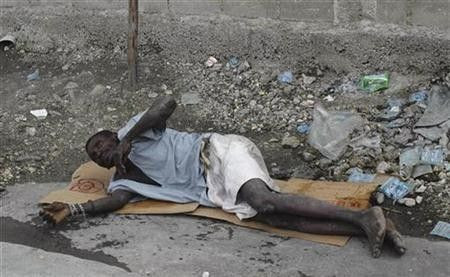Cholera Wipes Out Nearly 6,000 in Haiti

Nearly 6,000 people in Haiti have died since a Cholera epidemic broke out in October, with about 1,000 new cases reported daily in June.
The Haitian government has estimated the number of deaths to 5,800 victims while many health workers think the total is high, since this number does not account for those who die unreported and unknown in isolated areas of the country.
Since October, the bacterial disease spread like wild fire throughout the nation but dry spring weather soothed the widening. However the rainy season having recently commenced last month has added many more victims, with nearly 1,000 new cases reported daily by the Health Ministry, as reported in the Los Angeles Times.
The disease is spread through contaminated water, since the country does not have a sanitary water system in effect. In fact, the country has no central sewage authority or any trace of clean drinking water not to mention that most Haitians are homeless due to an earthquake that struck the nation early this year.
Without a sanitary sewage system, or any clean places to excrete wastes, more and more people contract the illness due to the uncleanly environment.
Many organizations have shown interest and have spearheaded programs and funds to help fight the root of the cause, by getting more clean toilets and developing a proper sewage system in the hopes to prevent the illness from spreading further.
This second resurgence of the disease remains promising for treatment, as those affected have the awareness of the illness and its symptoms and know to get help rapidly. However, this has every clinic in the nation filled to maximum capacity on any given day, as stated in the Los Angeles Times.
© Copyright IBTimes 2024. All rights reserved.






















